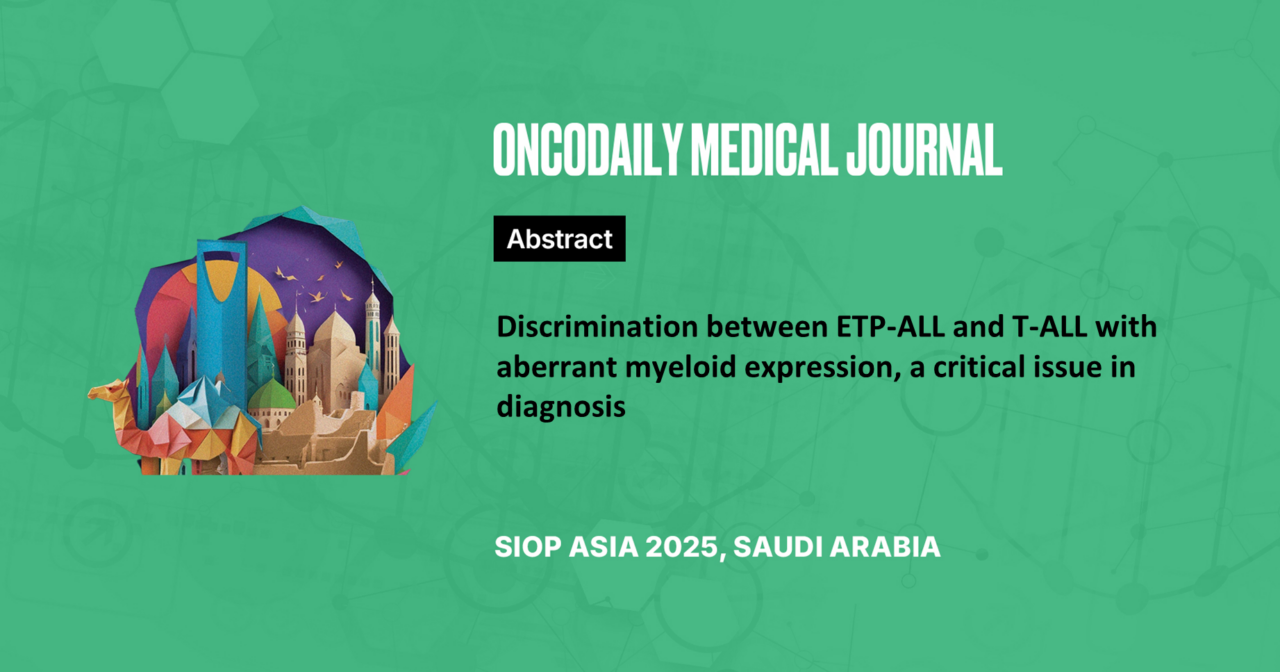Discrimination between ETP-ALL and T-ALL with aberrant myeloid expression, a critical issue in diagnosis
Abstract
Introduction: ETP ALL is a distinct subtype of T-ALL that is newly identified and consistently associated with a poor early treatment response to chemotherapy in pediatric patients. The diagnosis of ETP-ALL is crucial because it is resistant to standard treatment regimens. ETP ALL is defined by negative CD1a and CD8, weak or negative CD5, and expression of myeloid or stem cell associated markers. On the other hand, aberrant expression of myeloid markers is not uncommon in T-ALL. So differentiating ETP-ALL from T-ALL with aberrant expression of myeloid markers is important for better treatment decisions.
Methodology: This retrospective analysis includes 14 ETP-ALL and 8 T-ALL with aberrant expression of myeloid markers in pediatric cases from 54 T-ALL cases diagnosed in 2 centers between 2021 and 2023. Flow cytometry data was reviewed for all the cases. Two scoring systems including 5 and 6 antigens were used for diagnosis of ETP-ALL.
Results: ETP- ALL and T-ALL with aberrant expression of myeloid markers prevalence was 25.9% (14/54) and 14.8% (8/54) with median age of 12 and 9.1 respectively. CD13, CD33, CD34, CD117, CD11b and HLA-DR were myeloid/stem cell markers which expressed on blast populations in ETP-ALL. Cases with one, two and more than two myeloid/stem cell markers, were 14.3%, 50% and 35.7% respectively.
In T-ALL with myeloid markers CD13 (3 cases), CD117 (2 cases), CD33 (2 cases) and HLA-DR (1 case) were most frequent aberrancies respectively. All eight T-ALL cases with aberrant myeloid marker expression either expressed CD5 greater than 75% of blasts with moderate intensity or were positive for CD8 and/or CD1a which is incompatible with criteria for ETP-ALL flow cytometry diagnosis.
Conclusion: ETP- ALL shows poor response to standard therapeutic regimens and accurate diagnosis is mandatory for treatment decisions, so discriminating this subtype from other T-ALLs should be considered.





